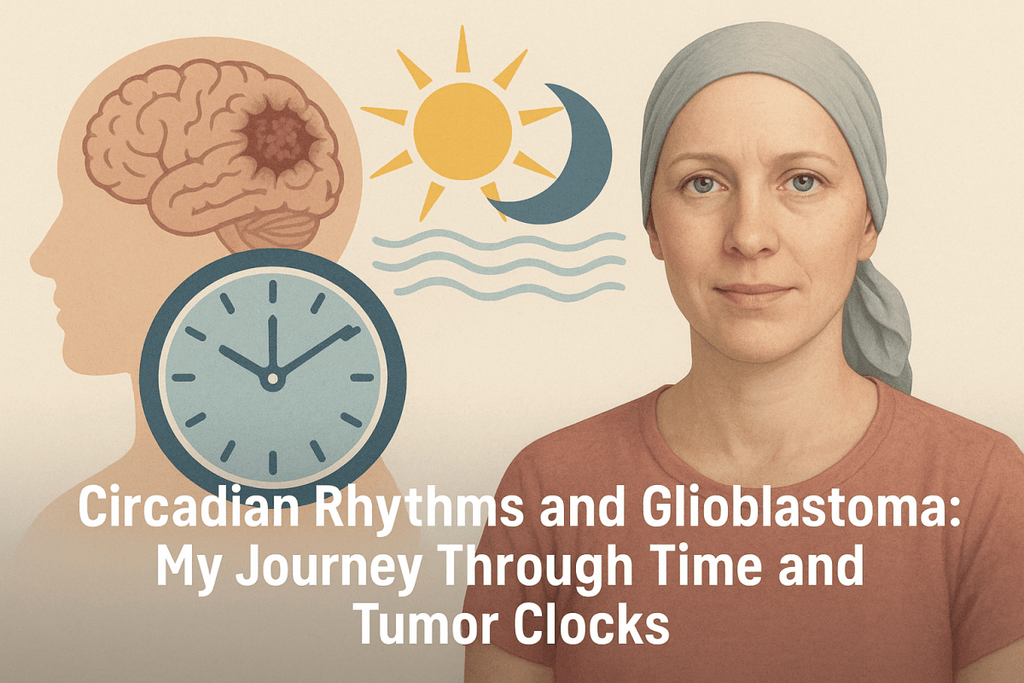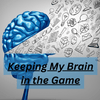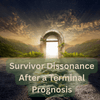Circadian Rhythms and Glioblastoma: My Journey Through Time and Tumor Clocks

This entire topic was inspired by a conversation with my husband. We both research everything, but when it comes to listening to our bodies—really listening—he truly understands it. He is the one who reminded me that our bodies are trying to tell us something, and maybe, just maybe, our cancer is listening too.
Introduction
When I was diagnosed with glioblastoma in late 2023, my world changed overnight. Suddenly, everything revolved around scans, appointments, and the terrifying statistics that no one wants to hear. But through the fog of fear and fatigue, I began asking deeper questions—ones that went beyond the chemotherapy and radiation. One of those questions was: Could the timing of our body’s natural rhythms—the circadian rhythm—actually affect how glioblastoma grows or responds to treatment?
As someone who lives with this disease every single day, I wanted to understand the science—not just as a patient, but as an advocate, a survivor, and the founder of JohnVsGBM, a mission-driven cancer apparel store that raises awareness through lived experience. In this post, I want to share what I have learned about circadian rhythm and glioblastoma. This is not medical advice, merely a personal exploration of some truly fascinating research that gave me both perspective and—yes—hope.
What Is Circadian Rhythm?
Our bodies have built-in clocks. They control when we feel sleepy, when our hormones rise and fall, and even how our cells repair themselves. This daily rhythm is called the circadian rhythm, and it is influenced primarily by light and dark cycles. For most people, this clock resets each morning when sunlight hits the eyes, triggering a cascade of biological events (Wang & Chen, 2022).
Before cancer, I took my sleep-wake cycle for granted. But after my diagnosis, I began noticing how dramatically my energy, appetite, and even my mood changed throughout the day. It turns out, that is not just the chemotherapy talking—it is also my body’s internal clock responding to a disease that itself might be running on a schedule.
Glioblastoma: A Tumor That Knows Time?
Here is the wild part: scientists have discovered that glioblastoma tumors have their own circadian rhythms. That means the cancer cells inside our brains are not operating randomly—they are actually responding to time-based signals in the body (Sidharthan, 2024).
A groundbreaking 2024 study out of Washington University found that glioblastomas can synchronize with the host’s daily hormone rhythms—especially cortisol, which spikes naturally in the morning. In mice, tumors grew faster when exposed to these daily cortisol cycles. Even more astonishing? When the circadian signals were blocked, the tumors slowed down (Gonzalez-Aponte et al., 2024).
This astonished me. As someone who took dexamethasone (a steroid often prescribed for brain swelling), I had always wondered why some days I felt worse than others. The same study showed that DEX can stimulate or suppress tumor growth depending on when it is given. Morning doses sped up tumor growth. Evening doses slowed it. Let that sink in. Same drug. Same dosage. Totally different outcome—just based on time of day (Gonzalez-Aponte et al., 2024).
What About My Chemotherapy?
I was also treated with temozolomide (TMZ)—the standard chemotherapy for glioblastoma. I took mine every morning because, well, that is what the prescription bottle indicated. But guess what? A 2021 study found that patients who took TMZ in the morning lived longer than those who took it at night (Damato et al., 2021). I never knew that until I dug into the research for this blog.
Now, follow-up studies in 2022 did not find a dramatic difference in outcomes between morning and evening (Damato et al., 2022), so it is not a magic bullet. But it does suggest that timing might matter—and might one day be tailored more personally, like how some cancer centers now use genetic markers to customize treatment.
Chronotherapy: Fighting Cancer by the Clock
The idea of using your body’s timing to enhance treatment is called chronotherapy. It has been studied in cancers like colorectal, and now glioblastoma researchers are catching on. In animal models, giving chemotherapy or other drugs like bortezomib at night made them more effective (Wagner et al., 2021).
Researchers are also developing new drugs that target the tumor’s clock itself. One such drug, SHP1705, activates a clock protein called CRY2, which seems to be suppressed in glioblastoma. When scientists used it on glioblastoma stem cells, the cancer cells slowed down significantly—without harming healthy brain cells (Chan et al., 2025).
This is not just lab hype—SHP1705 went through a Phase 1 trial in 2025, and it was found to be safe in healthy volunteers. Clinical trials in glioblastoma patients are expected next. That is real progress, and it is exciting.
Why This Matters to Me (and Maybe to You)
This topic hits close to home—not just because I live with glioblastoma, but because it shows me that science is still fighting for us, even when the odds feel stacked against us.
There are days when I feel like I have lost control. But learning that my tumor has a clock—and that scientists might someday learn how to break it—gives me a strange sense of empowerment. I cannot always choose the cards I have been dealt, but I can choose to stay curious, to stay involved, and to advocate for smarter, kinder, better-informed care.
If you or someone you love is battling glioblastoma, I encourage you to ask questions. Talk to your doctor. Ask about timing. It may not change your treatment plan today, but the conversation could make a difference tomorrow.
As for me, I will keep fighting—and I will keep digging into the science. Because every bit of understanding is one more weapon in this battle.
Works Cited
Chan, P., Nagai, Y., Wu, Q., Hovsepyan, A., Mkhitaryan, S., Wang, J., … Kay, S. A. (2025). Advancing clinical response against glioblastoma: Evaluating SHP1705 CRY2 activator efficacy in preclinical models and safety in Phase I trials. Neuro-Oncology, 27(4), 565–578. DOI: 10.1093/neuonc/noaf089
Damato, A. R., Luo, J., & Katumba, R. G. N., et al. (2021). Temozolomide chronotherapy in patients with glioblastoma: a retrospective single-institute study. Neuro-Oncology Advances, 3(1), vdab041. DOI: 10.1093/noajnl/vdab041
Damato, A. R., Katumba, R. G. N., Luo, J., & Rubin, J. B., et al. (2022). A randomized feasibility study evaluating temozolomide circadian medicine in patients with glioma. Neuro-Oncology Practice, 9(3), 193–200. DOI: 10.1093/nop/npab067
Gonzalez-Aponte, M. F., Damato, A. R., Simon, T., Aripova, N., Rubio, N., Rubin, J. B., & Herzog, E. D. (2024). Daily glucocorticoids promote glioblastoma growth and circadian synchrony to the host. Cancer Cell, 43(1), 144–160.e7. DOI: 10.1016/j.ccell.2024.11.012
Kay, S. A., Chan, P., & Rich, J. N., et al. (2025). Targeting circadian clock machinery in glioblastoma stem cells with CRY2-activator SHP1705. USC Keck Medicine press release, May 12, 2025.
Sidharthan, C. (2024, December 18). Brain tumors exploit body’s daily rhythms to fuel growth. News-Medical. Retrieved July 30, 2025, from https://www.news-medical.net/news/20241218/Brain-tumors-exploit-bodys-daily-rhythms-to-fuel-growth.aspx
Wagner, P. M., Prucca, C. G., Velazquez, F. N., Sosa Alderete, L. G., Caputto, B. L., & Guido, M. E. (2021). Temporal regulation of tumor growth in nocturnal mammals: In vivo studies and chemotherapeutical potential. FASEB Journal, 35(2), e21231. DOI: 10.1096/fj.202001948R
Wang, Z., & Chen, G. (2022). Insights about circadian clock in glioma: From molecular pathways to therapeutic drugs. CNS Neuroscience & Therapeutics, 28(12), 1930–1941. DOI: 10.1111/cns.13966


 NEW ARRIVALS
NEW ARRIVALS APPAREL
APPAREL GIFT AND HOME
GIFT AND HOME COLLECTION'S
COLLECTION'S HOPE HUB
HOPE HUB BLOG
BLOG




💕